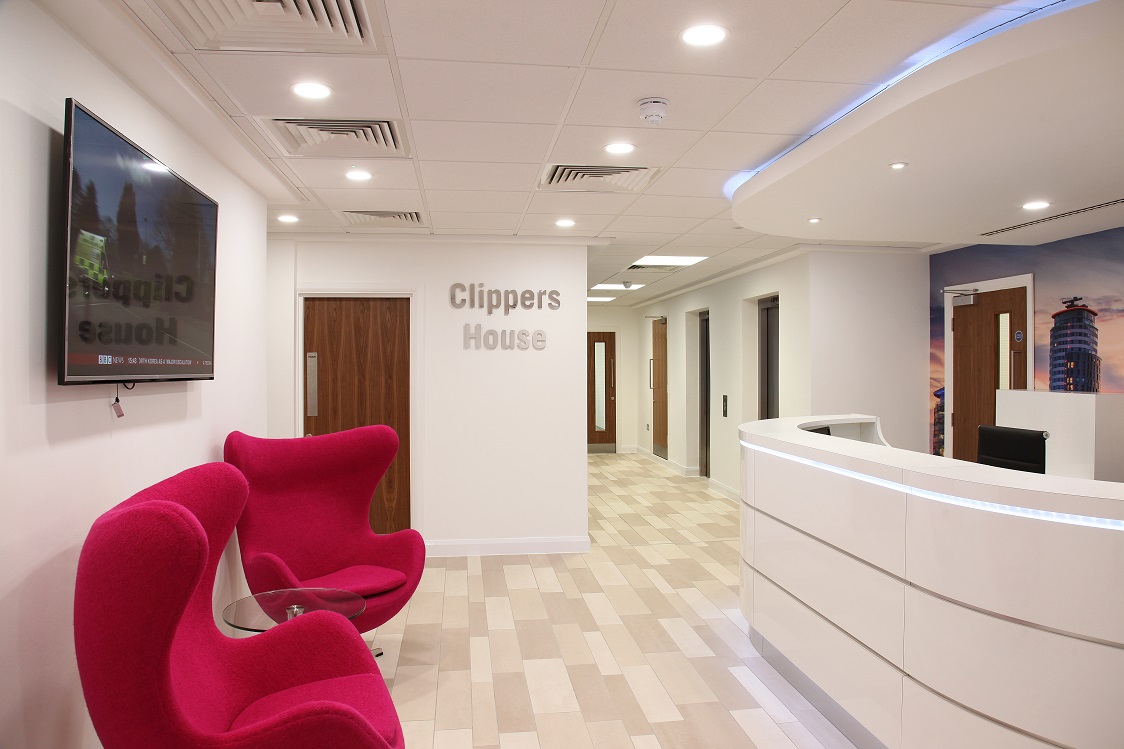
Stay In The Loop.
Welcome to our blog, keep up to date with the latest updates about Serviced Office Company, the latest industry news and find out about our exclusive tips!

The 30-year transformation of London's Docklands district:regeneration brings thousands of new homes and Crossrail to east London
London City airport celebrates three epic decades of change, transforming Docklands into a boom town of new neighbourhoods and cultural hubs.
- When London City airport opened in May 1987, Beckton was so bleak that film director Stanley Kubrick chose it as a location for his epic Vietnam war movie, Full Metal Jacket. But as the airport approaches its 30th birthday, its future, and that of the surrounding Docklands district, has never looked more promising.
Propelled by the success of Canary Wharf, the Docklands Light Railway, the 2012 Olympics, the creation of the new London City Island neighbourhood and the promise of Royal Docks regeneration, this unsophisticated spot in the boondocks has become a boom town.
LONDON CITY AIRPORT TURNS 30
The capital’s smallest airport is flourishing, with the blessing of most local residents who are reassured by a ban on night flights that minimises noise nuisance. -
New first-timer homes in hidden hub near Canary Wharf start from £115k
Far from being an environmental negative, the airport is considered a big plus for the area. It serves more than 40 UK and European destinations plus New York, while government-approved expansion is unlocking opportunities for longer-haul destinations to Africa and Asia and creating more than 2,000 jobs for locals.
New owners paid £2 billion for the airport last year and have pledged £350 million of investment, including new jets, to increase the number of annual passengers from 4.5 million to 6.5 million by 2025. More than half are business travellers, a higher proportion than any other UK airport.
This location is plugged into the DLR, while a London City airport Crossrail station, part of the Canary Wharf to Abbey Wood spur, is on the horizon.
 Transport-led improvements: DLR is key to the E16 success story
Transport-led improvements: DLR is key to the E16 success storyThere are also advanced plans for more river tunnels and bridges in this part of east London, and for an extended riverbus service beyond Woolwich.
The airport’s spectacular island runway in the middle of Royal Albert Dock seems to enhance the awesome urban setting. Certainly this is a part of the capital to live in if you like big skies and dramatic riverscapes.
Fast improving, it offers the chance to buy into a cheaper London district with considerable upside. The same applied to nearby Canary Wharf 20 years ago, and look what happened there.
 Regeneration zone: the area became so grim it was used as a location for Vietnam war film, Full Metal Jacket
Regeneration zone: the area became so grim it was used as a location for Vietnam war film, Full Metal JacketSILVERTOWN GOES FOR GOLD
The three Royal Docks — Victoria, Albert and George V — formed the largest enclosed docks in the world when they were built more than 100 years ago. The district is equal in size to the area from Hyde Park to Tower Bridge, with 12 miles of waterfront, more than Venice.When shipping ceased in the late Seventies, the area fell into isolation, but attempts to revive it as a global trading centre are succeeding, with science and business parks and a huge commerce and technology “port” aimed initially at Asia-Pacific companies. Regeneration is rippling out, through Canning Town to the new mini city that is Stratford.
 Rivalling Battersea: £3.5 billion Silvertown Quays will have 3,000 homes, workspace and a piazza as big as Covent Garden’s
Rivalling Battersea: £3.5 billion Silvertown Quays will have 3,000 homes, workspace and a piazza as big as Covent Garden’sNewly announced Silvertown Tunnel is set to open by 2023 and will integrate with a new 62-acre, 3,000-home neighbourhood called Silvertown Quays.
This £3.5 billion development is being built around a huge, currently derelict, Art Deco flour mill that is similar in scale to Battersea Power Station. It will be a place to work as well as live, with a central piazza the size of Covent Garden and “brand” showcase pavilions for global design and tech companies.
NEW ROYAL WHARF DEVELOPMENT BRINGS FAMILY-FRIENDLY TOWNHOUSES
In this part of Docklands, most new homes are flats in modern-design apartment blocks. But houses are being built too, to encourage families to move to the area. Royal Wharf, formerly a lubricants plant, is another new neighbourhood taking shape, with 3,385 homes, including London’s biggest batch of new townhouses.Though the architecture is contemporary, the development is rooted in old-fashioned design principles, inspired by London’s traditional landed estates, with their uncomplicated pattern of streets and squares. It will have its own school and DLR station, and almost half of this mainly low-rise development is open green space.
Eventually more than 20,000 people will live and work there. Prices from £365,000, with townhouses from £1,082,000. Call 020 7118 0400.
Royal Albert Wharf, another development, aims to bring convivial waterfront living to the still-raw Beckton landscape. This new “quarter” of 1,500 homes has flats grouped around the dock and a handsome Edwardian pump house. A new bridge across the dock will link with new shops and offices. From £362,000. Call 020 8357 4579.
 From £399,950: new homes at London City Island
From £399,950: new homes at London City IslandLONDON CITY ISLAND
Twelve-acre London City Island sits in a loop of the River Lea as it joins the Thames and has vibrantly coloured glazed-brick apartment blocks alongside lush gardens and an exotic outside swimming pool. And the area is no longer a cultural desert. English National Ballet is quitting Kensington to relocate to a dazzling new headquarters with performance space at City Island.London Film School is also moving there, and the development is on the route of The Line, the capital’s first dedicated contemporary art walk running from Stratford to Greenwich and marked with outdoor sculptures by the likes of Gary Hume, Eduardo Paolozzi, and Damien Hirst. Prices from £399,950. Call 020 7118 0400. The scheme also has a New York-style deli and grocery alongside the chill-out spa complex and social club.
Popular older developments include Western Beach, Capital East, Eastern Quay, Tradewinds and Barrier Point, which has a splendid riverside park. In general, resales start from about £350,000 and rise to more than £1 million for penthouses.The
 From £575,000: homes at One Park Drive in Canary Wharf
From £575,000: homes at One Park Drive in Canary WharfCANARY WHARF
Property values in the London City airport area are still at least 25 per cent below those surrounding the Canary Wharf business zone, where a new wave of luxury skyscrapers is pushing up prices.The latest scheme to launch is One Park Drive, a corn-cob shaped 58-storey tower designed by Tate Modern architects Herzog & de Meuron. Prices start at £575,000 for a studio and £1,080,000 for a two-bedroom apartment. Call 020 7001 3800.
Nearby South Quay Plaza has 888 homes, many in a 66-storey skyscraper built at a 45-degree rotation to ensure apartments are dual aspect. Designed by Foster + Partners, the tower has a luxury health club and brings a new dockside promenade and park plus shops, bars and restaurants. Prices from £675,000. Call Berkeley Homes on 020 3675 4400.
While these swish homes are aimed at high-earning bankers and corporate lawyers, those further east are more affordable and set to benefit from London Mayor Sadiq Khan’s investment masterplan for the Thames Gateway.
Get in touch.
If you’re interested in a property and would like to enquire about prices, packages or
would like to arrange a tour, the form below


